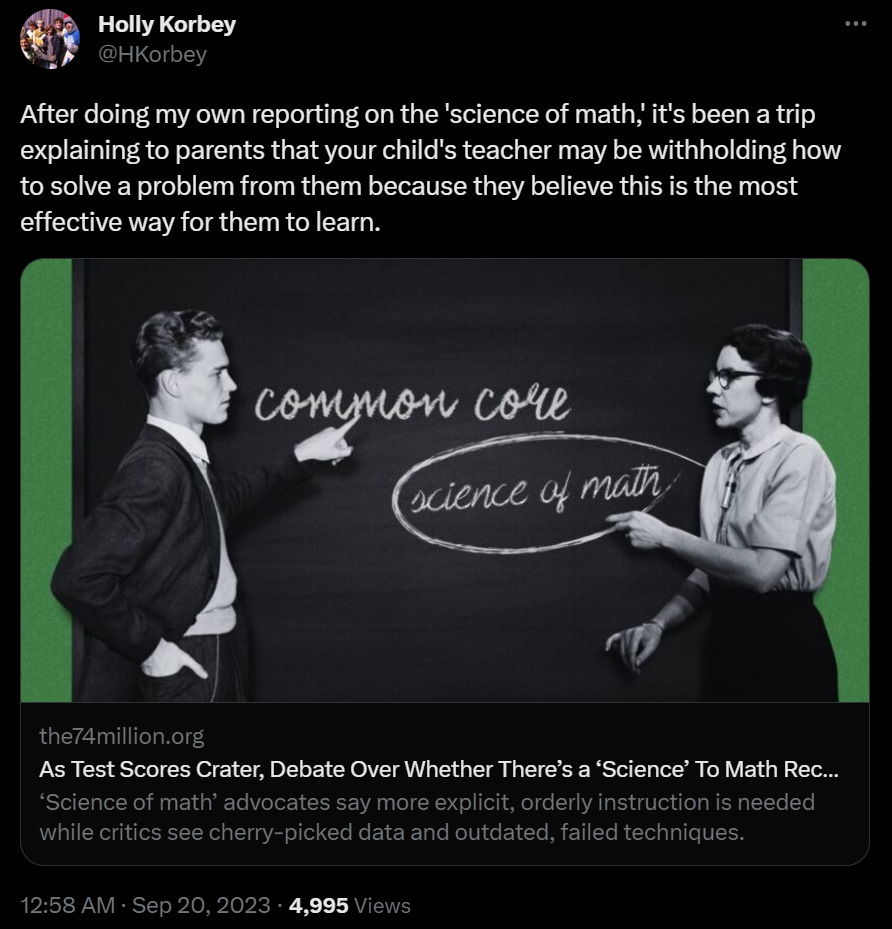This week, we managed to visit the beach for a few days. It is the term break and Spring is here a little more decisively and exuberantly than usual, continuing the pleasant weather we have had of late.
There is a little bookshop in Ocean Grove that is festooned with YES posters and related literature — as I mentioned last week, we are having a referendum in Australia on a First Nations Voice to parliament. The store is so small that it combines history, science and politics in one section. Never one to pass a bookshop, I bought a short work on Russian history by Orlando Figes and I am trying to absorb that when I can. If experience is anything to go by, I will soon be advised this is the wrong book on Russian history. If so, I welcome such advice because I find the hive mind to be expansive and improving.
This week’s Curios include a couple of papers by my PhD supervisors, the ‘science of maths’ and much, much more of the stuff you love.
Quote of the week
The science of maths or, as our North American friends term it, the science of math, is receiving welcome attention in the U.S. right now — this is the movement that seeks to move away from fuzzy, hand-wavy, six-solutions-to-the-same-problem, now-give-a-presentation-to-show-you-understand maths teaching methods in favour of structured and explicit ones. It is a credit to the academics and campaigners who have sought to place it squarely on the agenda in the wake of advances in favour of structured literacy teaching.
Over at The 74, Jo Napolitano has penned a long read, interviewing the key players. I am not neutral, but I would be surprised if neutral readers of Napolitano’s piece left without a sense of where the weight of evidence lies. It is also, it has to be said, common sense. Holly Korbey, another journalist to address the science of maths, commenting on Napolitano’s piece, noted that, ‘it’s been a trip explaining to parents that your child’s teacher may be withholding how to solve a problem from them.’
Napolitano’s article contains the following quote from Professor Jo Boaler who is not a fan of the science of maths movement:
“…if you stand at the front and tell them first, it often stops them really being able to engage conceptually because their brains are just so taken up with these methods and rules, they can’t even think conceptually.”
Boaler provides no evidence to support this unlikely claim and the format does not demand it. However, past experience suggests that even if she did provide a source, a journey down that particularly rabbit hole could be one that is embarked upon in vain.
So, I will just poke at it half-heartedly by asking: what if the teacher is explaining a concept?
Boaler also claims those who promote the science of maths, ‘have cherry picked data’. Which takes some chutzpah. Nevertheless, it inspired this week’s AI generated lead image.
Keep reading with a 7-day free trial
Subscribe to Filling The Pail to keep reading this post and get 7 days of free access to the full post archives.






